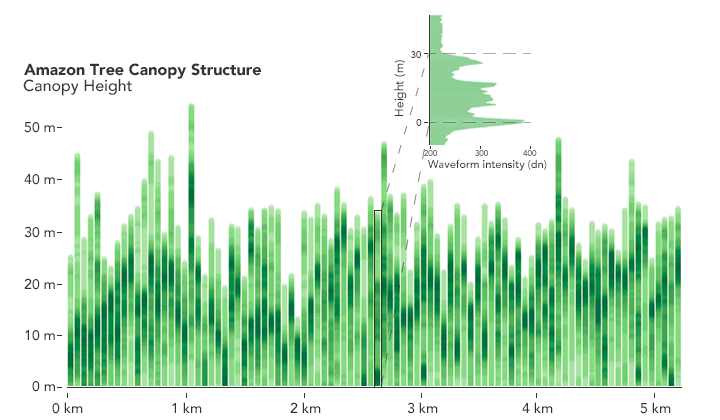Lasers from Space Gather Climate Change Data in Forests
September 1, 2022
For several decades, global climate change has been a hot-button issue. Rising sea levels, melting ice caps, and unusual storm activity all signal that our planet is in trouble, and experts have struggled to agree on a universal answer for slowing the heat death of the world.
There are common, simple actions that people can take in everyday life, such as choosing clean energy, properly disposing waste, and using less plastic. However, on a larger scale, a more complex solution is needed.
Part of the recently passed Inflation Reduction Act offers generous incentives to businesses and individuals to encourage them to purchase eco-friendly electric vehicles and energy-efficient appliances. Additionally, the act hopes to spur new investment in cleaner energy sources such as solar power and wind. With these new investments, the act could double the amount of new clean electricity in the US by 2024.
One particularly ambitious approach to fighting climate change has been put into place by the United Nations’ Food and Agricultural Organization (FAO), which uses their newly-launched Framework for Ecosystem Monitoring (FERM) website to gather satellite images that reveal areas of decline in the planet’s forests and monitor their progress. The unique part of this endeavor is the Star Wars-esque way that many of the satellite images are being collected: picture giant lasers from space.
In late 2018, NASA launched the complex Global Ecosystem Dynamics Investigation (GEDI) system, which is housed aboard the International Space Station and was created in collaboration with the University of Maryland. This system deploys three powerful laser beams into forests to take satellite image measurements of tree and plant heights and ground elevation levels, which are then used to create 3D maps showing amounts of carbon and biomass that the forests store. As these measurements are repeated every four to five days, they have shown clear indication of progressive resource depletion due to climate change.
The GEDI laser technology differs from other equipment used to capture satellite images of forests due to the sophistication of the data it gathers. Instead of simply viewing the forest canopy, scientists can gain a more accurate understanding of the amount of carbon and other biological reserves stored within the foliage by determining the exact size and density of plant life there. The 3D mapping creates an accurately-scaled picture of the biodiversity existing in the forest, providing researchers with better insight into the available natural resources and how they affect the global climate.
Scientists are optimistic that this promising technology, along with the new FERM website documenting these satellite images, will be valuable for understanding the rate of resource depletion and developing solutions for conservation.
For those interested in engineering technological solutions that sound like they’re straight out of a sci-fi movie, Capitol Technology University offers numerous degree programs that can help you help our planet. Capitol’s Bachelor of Science in Engineering Technology will teach you to design, engineer, and implement solutions similar to NASA’s satellite lasers. We also offer a Master’s of Research degree in Sustainability for those who want to gain expertise in materials management, manufacturing, and energy system design for more sustainable and environmentally-friendly resource use in technology sectors.
To learn more about these programs, visit captechu.edu and check out the various courses and degrees offered. Many courses are available both on campus and online. For more information, contact admissions@captechu.edu, for Undergraduate, gradadmit@captechu.edu for Master's programs, and doctorate@captechu.edu for Doctoral programs.




